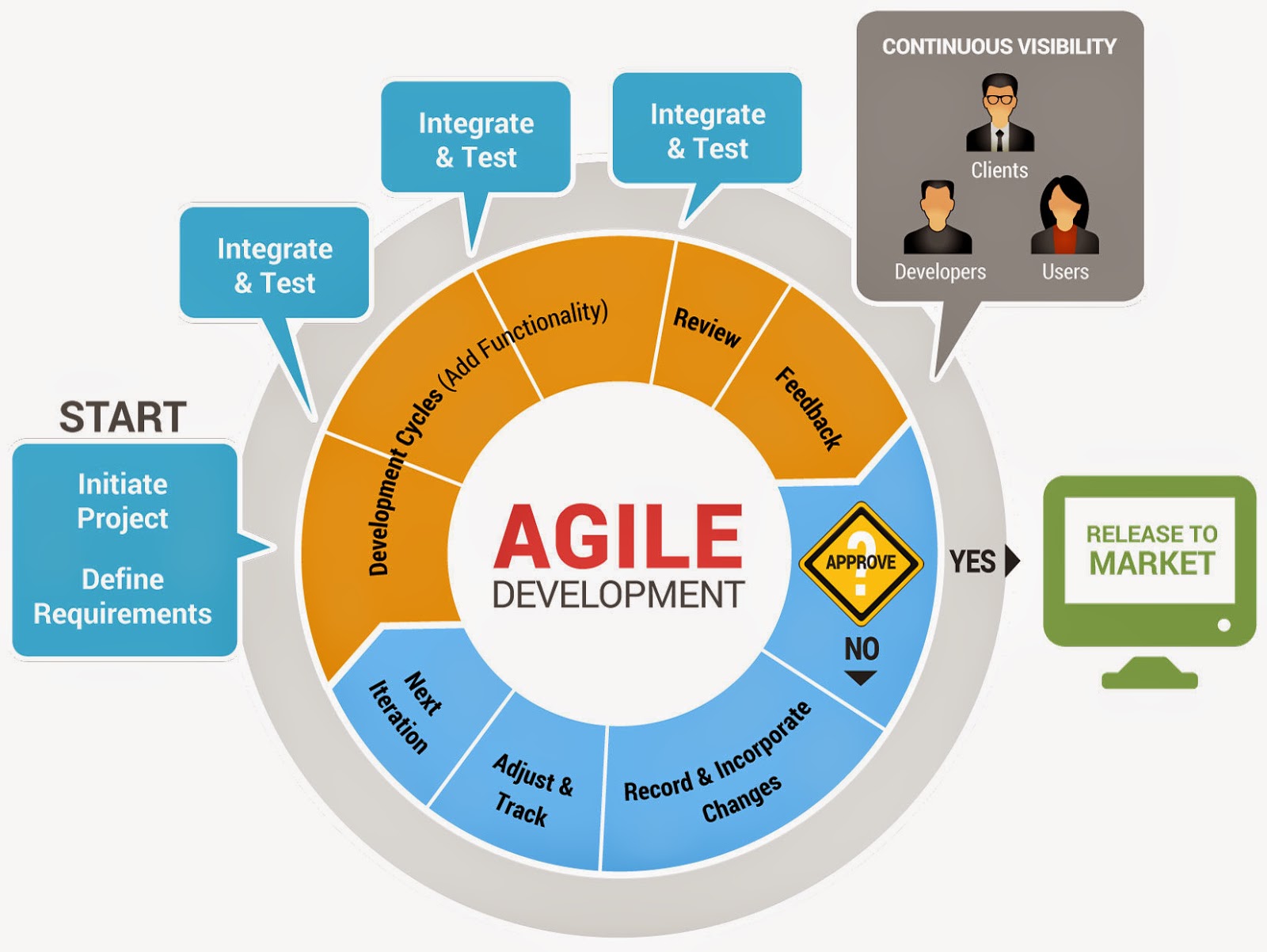We use the Agile Methodology for software development. Agile software development is an iterative and flexible approach to software development that emphasizes collaboration, adaptability, and customer feedback. It aims to deliver high-quality software in a more efficient and responsive manner compared to traditional waterfall methods.
Here are some key principles and characteristics of Agile software development:
1. Iterative Approach: Agile projects are divided into small increments or iterations, typically lasting from one to four weeks. Each iteration results in a potentially shippable product increment.
2. Adaptive Planning: Agile teams embrace change and continuously adapt their plans and priorities based on customer feedback, market changes, and evolving requirements.
3. Collaborative Teams: Agile teams are cross-functional, typically consisting of developers, testers, designers, and other stakeholders. Collaboration among team members is emphasized to ensure collective ownership and shared responsibility for project success.
4. Customer Involvement: Customers or stakeholders are involved throughout the development process, providing feedback and prioritizing features to ensure that the end product meets their needs and expectations.
5. Incremental Delivery: Agile projects deliver working software in small, frequent increments rather than delivering the entire product at once. This allows for early and continuous validation of the product’s functionality.
6. Continuous Integration and Testing: Agile teams practice continuous integration, where code changes are integrated frequently and tested automatically to detect issues early in the development process.
7. Emphasis on Individuals and Interactions: Agile values individuals and interactions over processes and tools. Communication and collaboration among team members are prioritized to ensure a smooth development process.
8. Embracing Change: Agile processes welcome changes in requirements, even late in the development process. Changes are viewed as opportunities to deliver a better product rather than obstacles to be avoided.
9. Regular Reflection and Improvement: Agile teams regularly reflect on their processes and seek ways to improve efficiency, productivity, and product quality through retrospectives and other feedback mechanisms.
Popular Agile methodologies include Scrum, Kanban, Extreme Programming (XP), and Lean Software Development. Each methodology provides a framework for implementing Agile principles and practices but can be tailored to suit the specific needs and context of the project.


Recent Comments